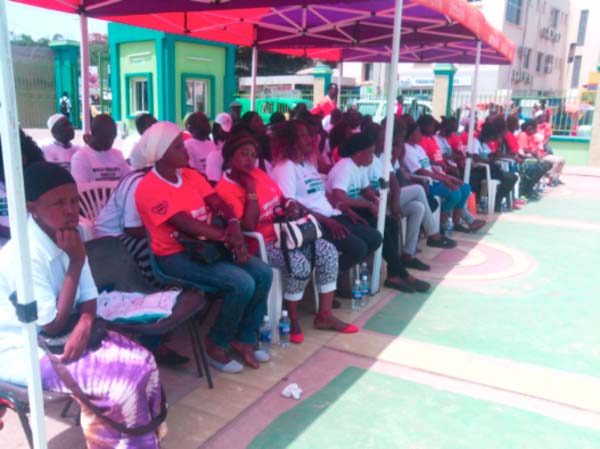
The
Gambia on Wednesday joined the rest of the world to celebrate World Consumer
Rights Day.
The
celebration took the form of a march-past from Serrekunda Market to the Youth
Monument at Westfield.
The
celebration was organized by the Gambia Competition and Consumer Protection
Commission (GCCPC) in collaboration with PURA.
PURA
is a statutory body established in 2009 to enforce the Competition Act of 2007
to administer the Consumer Protection Act 2014, and to jointly administer and
severally enforce the essential commodities Act 2015.
The
GCCPC has its primary objective to promote and maintain competition in The
Gambia by curbing anti-competitive practices to protect consumers from unfair
and misleading market practices, and to jointly regulate the importation,
distribution and retailing of essential commodities in The Gambia.
This
year’s celebration was on the theme: “Consumer Rights in the Digital Age” and
the celebration centered on creating awareness and advocating on consumer
online protection, Consumer Data Safety and Consumer Rights and
Responsibilities.
Delivering
a statement at the event, Demba Ali Jawo, Minister of Information and
Communication Infrastructure, said World Consumer Rights Day is celebrated
worldwide and it has come as a tradition all over the world.
“This
is celebrated in over ninety countries based on diversity with other consumer
organizations, government agencies and other international organizations to
highlight the challenges faced by consumers.”
Minister
Jawo noted that the various consumer organizations in the country together with
the Gambia Competition Protection Commission, the Gambia Public Utilities
Regulatory Authority (PURA) and Telecoms operators together with Consumer
International has decided to come together to celebrate the day.
He
added that Consumer International with a membership of over 240 organizations
in 120 countries has the primary objective of fighting for fair, safe and
sustainable future for world consumers in a global market increasing dominated
by international cooperation.
The
government of The Gambia has the consumer protection Act 2014, in which the
consumer’s rights were recognised, the right for satisfaction of basic needs
which include access to basic essential goods and services, adequate food,
shelter, healthcare, education and public utilities such as water and sanitation.
The
right to safety which means to be protected against production, process and
services, and the right to be informed, which means consumers should be given
the facts needed to make informed choices, and be protected against dishonest
or misleading advertising and labeling which could avoid some of the problems
facing consumers delay.
The
right to choose, which means that consumers should be able to select from a
range of products and services over competitive prices, with an assurance of
satisfactory quality.


